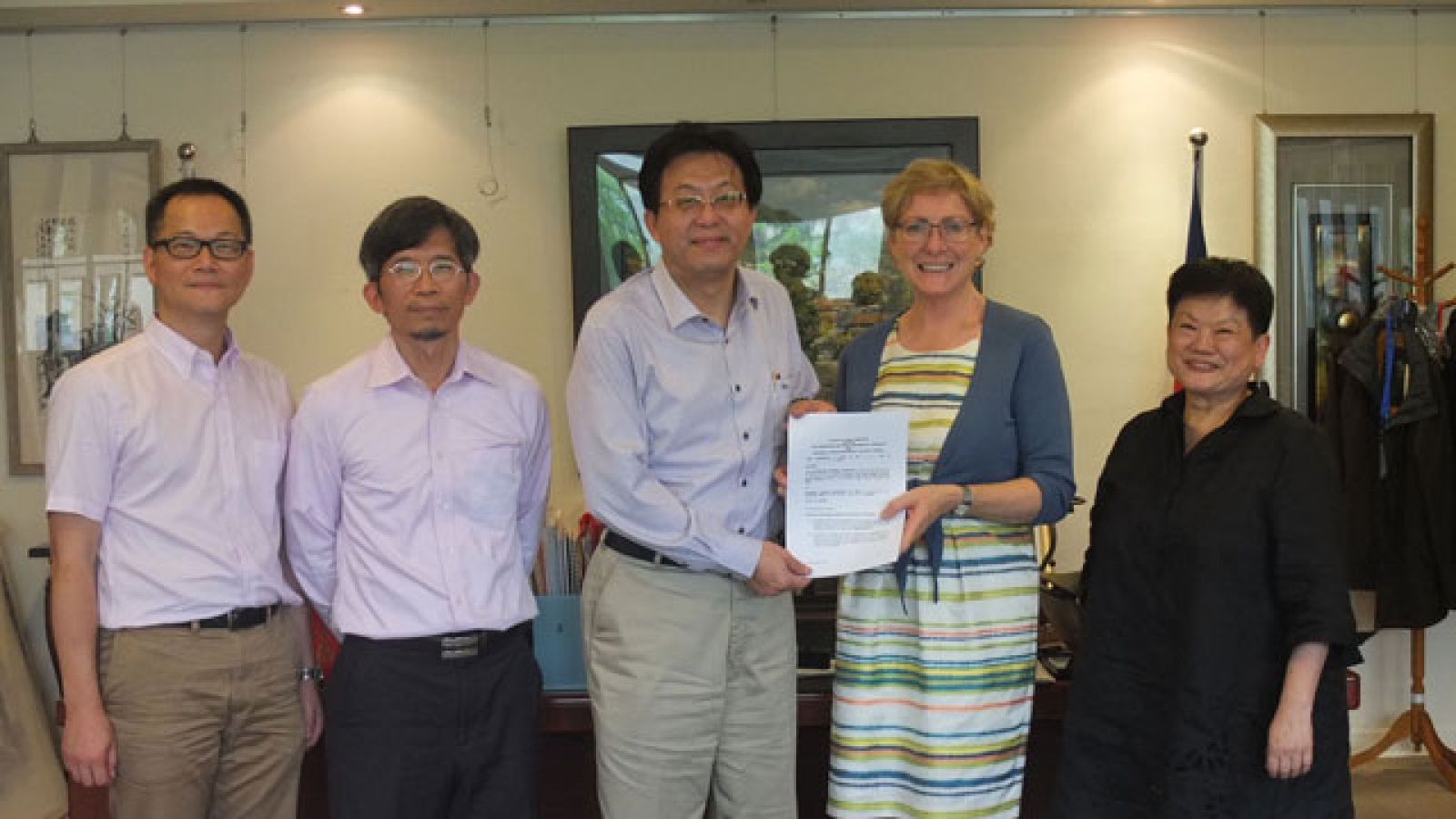New horizons through ANU-Taiwan student exchange agreement

From left: Ivan Yi-Feng Li, Director of the International Cooperation Division, NTUA; Dr Hsin-Tien Liao, Dean of the College of Humanities, NTUA; Dr Yung-Cheng Hsieh, President, NTUA; Associate Professor Denise Ferris, Head of the School of Art, ANU; and Dr Mei-Ling Chu, Director of the Office of International Affairs, NTUA.
The chance to study in Taipei, one of northeast Asia’s most dynamic cities, has opened up after ANU signed a deal with the National Taiwan University of Arts (NTUA).
The five-year deal begins this academic year, was signed by CASS Dean Professor Toni Makkai, and formalised during an April visit to Taipei by School of Art senior officials. It builds on earlier trips to Taipei and the Made in Taiwan exhibition ANU hosted in 2014.
“We have lots of associations with external partners and wanted another association with the Chinese-speaking world,” Head of the School of Art, Denise Ferris, said.
“We’ve an agreement with the China Academy of Art in Hangzhou, so it was appropriate that we had a formal student exchange with Taipei.
“NTUA knows the quality of the School of Art’s research and our studios. Many of my NTUA colleagues have trained in Australia and their children have studied here.
“Head of Painting Ruth Waller and I were invited to Taiwan for an exhibition and it allowed me to examine the campus and learn how the studios are very akin to ours,” Ferris said.
“Students can have a new experience, but one that fits within their academic pathway.”
The universities each agreed to send up to two students each for one semester, or one student per university for a full academic year.
Ferris said although the deal was less than a month old, one ANU student has already expressed an interest.
“Taiwan offers a different experience to mainland China, so our students who are Mandarin-speakers, as well as English-speakers depending on what they are doing, will have that opportunity.”
Ferris left Taiwan impressed with its expansive museums and galleries.
“The aesthetics of Taiwanese culture and art are very striking and it has an interesting island culture similar to Australia in a way,” she said.
“It has a high quality natural environment which is very green to our aridness, very mountainous to our plains but ringed by black basalt and surf. There is also a very strong Japanese aesthetic which came from the occupation.”
Students can take advantage of the institutions in Taipei, while Canberra has facilities no other Australian city can match.
“There are incredible learning opportunities from Taiwan’s leading, significant institutions, as is Canberra with our national institutions,” Ferris said.
“For potential students, Taipei is an easy place to get around and it’s endlessly interesting. In the art studio, language is not as central an issue, as it might be in text-base work. Their school is much larger than ours, so students would be among a great peer group who would make them warmly welcomed, as we were.”